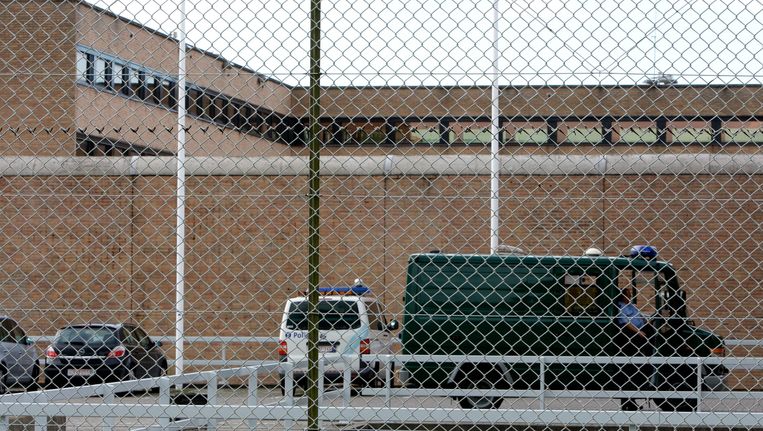Seeking to repair its tarnished image when it comes to the treatment of prisoners, Belgium is investing heavily in psychiatric support for inmates.
The country will open three new Forensic Psychiatric Centres (FPCs) in Aalst, Wavre and Paifve by 2027 at the earliest, and in the meantime is hiring 116 extra care providers on top of the 50 extra people already decided on last year.
“In recent years, our country has been condemned several times by the European Court of Human Rights for the way it treats internees,” reads a statement from the office of Deputy Prime Ministers and Ministers of Justice and Public Health Vincent Van Quickenborne and Frank Vandenbroucke.
“More than 700 internees are staying in prison because of a lack of specialised facilities. They do not belong there and do not receive proper care and guidance.”
Imprisoned due to lack of specialised facilities
A person who commits a crime and suffers from a mental disorder can be interned by a court on the basis of a psychiatric report. Such an internment is not intended to be a punishment but rather a safety measure.
In these cases, a person must have committed a crime affecting the integrity of third parties, suffer from a mental disorder at the time of the decision that means they lack control over their actions, and present a real risk of committing new criminal acts.
Such prisoners are entitled to care and may be released again after an indefinite period if their condition improves and is positively evaluated.
Related News
- Hundred new prison welfare projects launched in Belgium will 'cost society nothing'
- Belgian prisons in top 5 most densely populated in Europe
But in 2014, more than 1,000 internees were still being imprisoned due to a lack of specialised facilities that can provide the care they are entitled to. Despite efforts to provide places for inmates outside of prison, today that number is still as high as 776.
“This is partly because the flow is not smooth and the number of internment verdicts is increasing year after year, from 286 in 2017 to 476 in 2020. In recent years, the average length of stay of internees in prisons has doubled,” Van Quickenborne’s office says.
Future centres planned to address issue
Van Quickenborne says a thorough investigation is being conducted into the cause of this increase and the underlying factors, but is taking steps towards reform in the meantime.
Some of the possible explanations being considered when it comes to the rise in prisoners include the possibility that public prosecutors are quicker to demand internment and that judges are quicker to pronounce it due to a larger supply of care.

Deputy Prime Minister and Minister of Justice Vincent Van Quickenborne. Credit: Belga
“The ultimate goal of good and humane care for internees is reintegration into society,” Deputy Prime Minister and Minister of Social Affairs and Public Health Frank Vandenbroucke said in a statement.
“For this you need good cooperation of all parties involved (justice, care, welfare) and a diverse care offer to provide tailor-made care, including the 3 planned FPCs.”
Because those extra centres won’t be constructed until 2027 at the earliest, Vandenbroucke called the investment of 116 extra care providers “an important and welcome initiative as a temporary emergency measure, although we know of course that we still have a long way to go before we get where we need to go.”

